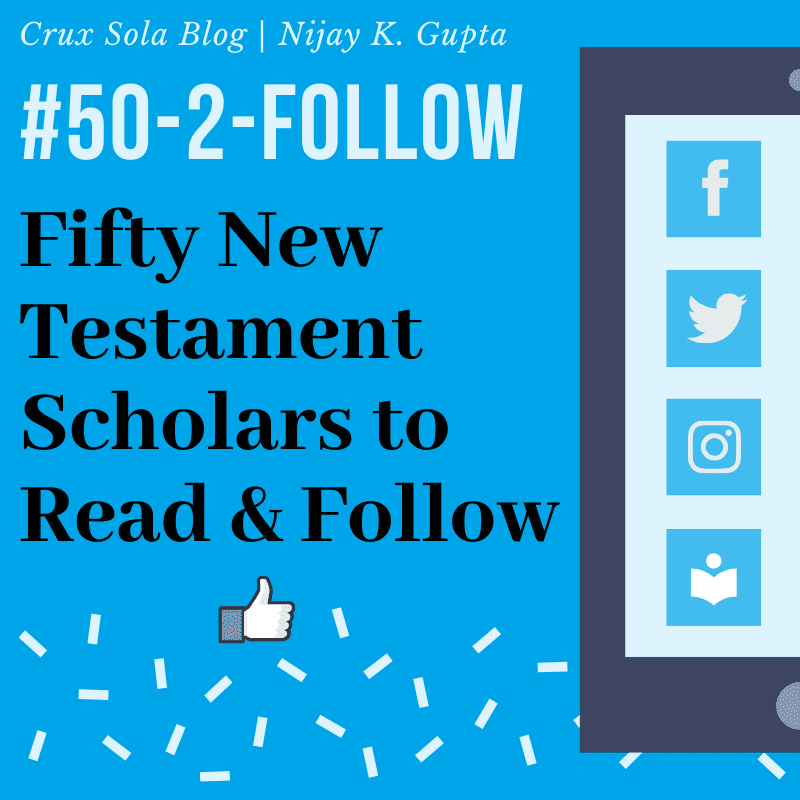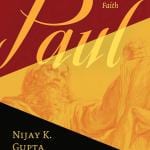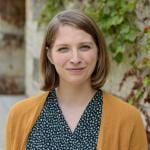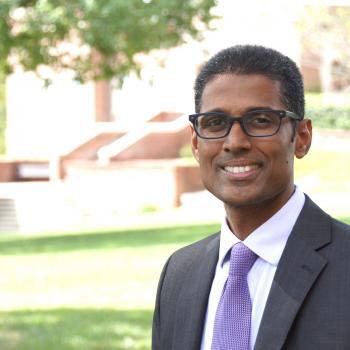This blog series spotlights 50 NT scholars and their research. The goal of this series is to introduce readers to a wider circle of scholarship than they have encountered. The majority of people on this list are early or mid-career NT scholars who are doing great research and writing.
Associate Professor of New Testament
Princeton Theological Seminary
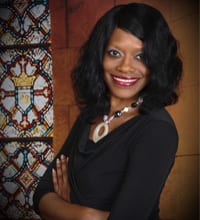
Explain why you love teaching and/or writing, and why it brings you vocational satisfaction.
I enjoy teaching because it allows me to interact and engage with students in the classroom. I love seeing them have that “A-ha” moment when a concept finally clicks or they make connections between different topics we’ve discussed. One of the amazing gifts of being a theological educator is that I have the opportunity to journey with students as they grow and develop in their own callings and learn to follow God’s will for their lives. Writing for me is also a privilege and something I enjoy doing even though it can be a laborious and tedious process. I find that it gives me life and when I am not doing it, it seems like an important part of my life is missing.
What is one “big idea,” emphasis, or theme in your scholarship that you hope impacts the way students and scholars read and understand the NT?
One of the themes that permeate my scholarship and one of the big ideas I hope that students learn from me is the important skill of reading these texts closely. In order to read the New Testament well we need to engage in close and careful reading of these texts and at the same time allow these texts to read us.
Who is your academic hero and why?
There are a number of people I could name because I’ve been fortunate to have many good teachers but two stand out at this moment in my career. Susan Eastman because I learned so much from her, such as reading Paul apocalyptically, the importance of reading texts closely, as well as how to create a hospitable atmosphere in the classroom. The other person is my Doktorvater, J. Ross Wagner, who also taught me the importance of starting with the text and being a careful reader. Both Susan and Ross combine a pastoral heart and academic excellence. All of these qualities I try to emulate.
Name a few academic books that were formative for you as a student.
Read Bowens’ Books
Follow Bowens’ Work ONLINE
Follow Bowens on Social Media
If you ran into me at SBL, and you didn’t want to talk about New Testament studies, what would you want to talk about?
College basketball
What is a research/writing project you are working on right now that you are excited about?
I am excited about my forthcoming book called African American Readings of Paul: Reception, Resistance, and Transformation (Eerdmans, Oct, 2020). In this book I examine how African Americans have interpreted Paul throughout history. I analyze quite a bit of primary sources from the early 1700s to the mid-twentieth century, including sermons, conversion stories, slave petitions, and autobiographies of ex-slaves. Doing research for this book was exciting and inspiring. I hope that readers will be inspired as well.
I am also excited about another project in which I am a contributor as well as a coeditor with Scot McKnight and Joseph Modica called Preaching Romans From Here. Romans is arguably one of the most influential New Testament books in the history of Christian theology and there are a number of perspectives (e.g., reformed, new, apocalyptic, participationist, among others) on this Pauline epistle but not all of them are known by most and too many of them not known at all. This project seeks to rectify this by giving voice to those who have been too often voiceless and is an invitation for Christian scholars to share how they read and preach Romans from their perspectives such as Native American, Latinx American, Asian American, and so forth. I think this book will be quite inspiring and informative as well.

